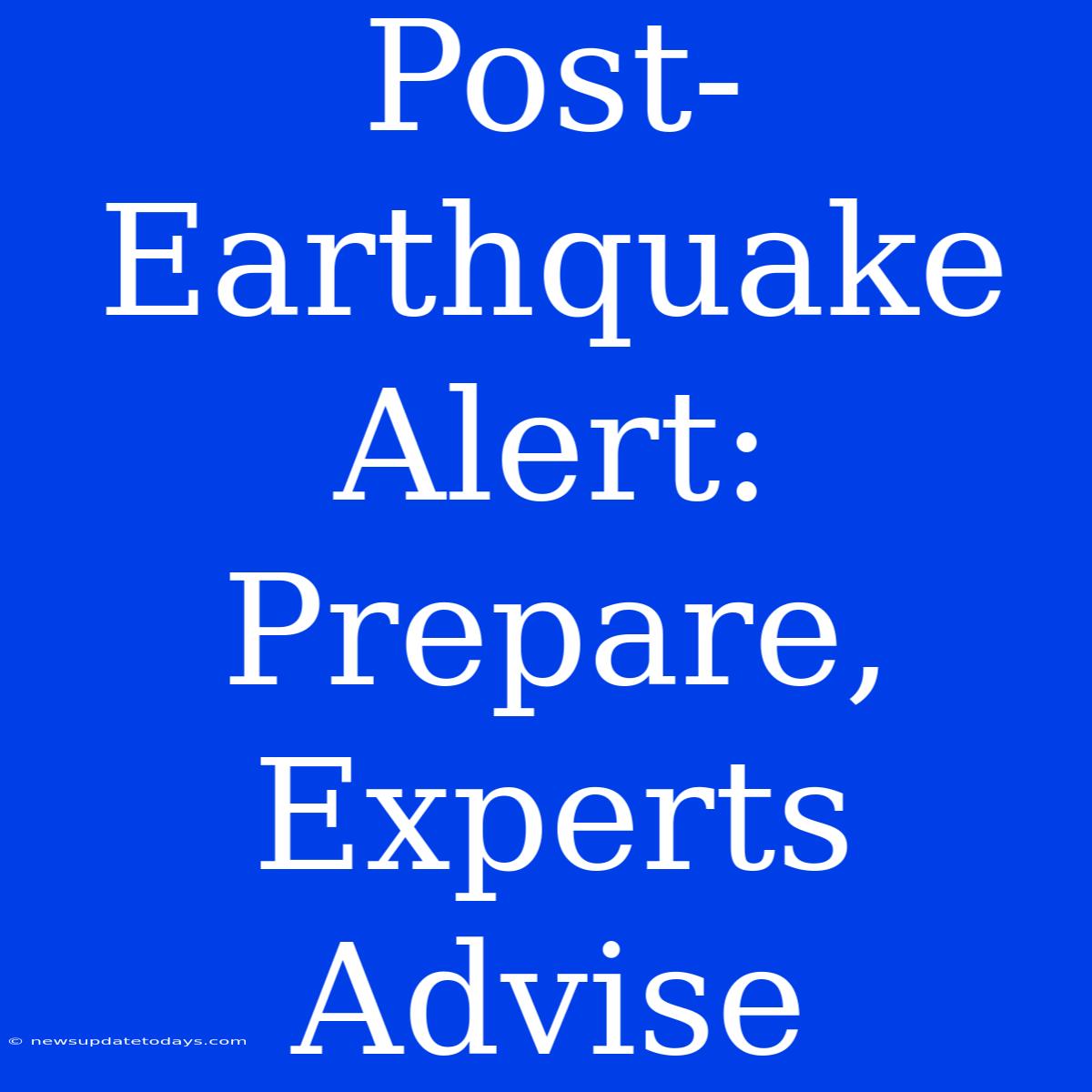Post-Earthquake Alert: Prepare Now, Experts Advise
The earth trembles, buildings sway, and lives are disrupted. Earthquakes, unpredictable and devastating, demand preparedness. This post-earthquake alert isn't about fear-mongering; it's a call to action. Experts advise immediate preparation, not just for survival, but for a swift and effective recovery. Ignoring this advice could mean the difference between safety and suffering.
Understanding the Aftermath: More Than Just Shaking
The immediate aftermath of an earthquake is chaotic. Beyond the initial tremors, a multitude of dangers emerge:
- Aftershocks: These smaller earthquakes can continue for days, weeks, or even months after the main event, weakening already damaged structures and posing a significant risk.
- Structural Damage: Buildings collapse, roads become impassable, and infrastructure crumbles, hindering rescue efforts and essential service delivery.
- Tsunamis: In coastal areas, earthquakes can trigger devastating tsunamis, requiring immediate evacuation to higher ground.
- Fires: Damaged gas lines and electrical systems can ignite widespread fires, compounding the devastation.
- Lack of Essential Services: Water, electricity, communication, and healthcare services may be disrupted for extended periods, creating critical shortages.
Preparing for the Inevitable: A Proactive Approach
Experts emphasize proactive preparation. Don't wait for the next earthquake to hit; prepare now. Here's a comprehensive guide based on expert advice:
Before the Earthquake:
- Develop an Emergency Plan: Create a family communication plan, including meeting points and out-of-area contact information. Practice your plan regularly.
- Secure Your Home: Secure heavy objects, reinforce shelves, and learn how to turn off gas and electricity safely.
- Assemble an Emergency Kit: Include water (at least one gallon per person per day for several days), non-perishable food, a first-aid kit, flashlights, batteries, a whistle, dust masks, and important documents (copies stored separately). Consider pet supplies if applicable.
- Identify Safe Zones: Locate sturdy furniture or areas within your home that can provide shelter during an earthquake.
- Learn CPR and First Aid: Basic first aid and CPR training can be invaluable in the immediate aftermath of an earthquake.
During the Earthquake:
- Drop, Cover, and Hold On: The most effective method for protecting yourself during an earthquake.
- Stay Away from Windows and Doors: These areas are prone to shattering.
- If Outdoors, Stay Away from Buildings and Power Lines: Find an open area and remain there until the shaking subsides.
After the Earthquake:
- Check for Injuries: Assess yourself and others for injuries and provide first aid if necessary.
- Evacuate if Necessary: Follow evacuation orders and proceed to designated safe zones.
- Communicate with Loved Ones: Check in with family and friends to ensure their safety.
- Avoid Damaged Areas: Stay clear of damaged buildings and power lines.
- Be Aware of Aftershocks: Expect aftershocks and be prepared for additional shaking.
Taking Action Today: Your Role in Preparedness
Post-earthquake survival depends heavily on preparedness. The advice provided here is not exhaustive, but it represents a crucial starting point. Consult your local emergency management agency for region-specific advice and resources. By implementing these steps, you're not just protecting yourself; you're contributing to a more resilient and prepared community. Don't wait for the next earthquake—prepare today.

